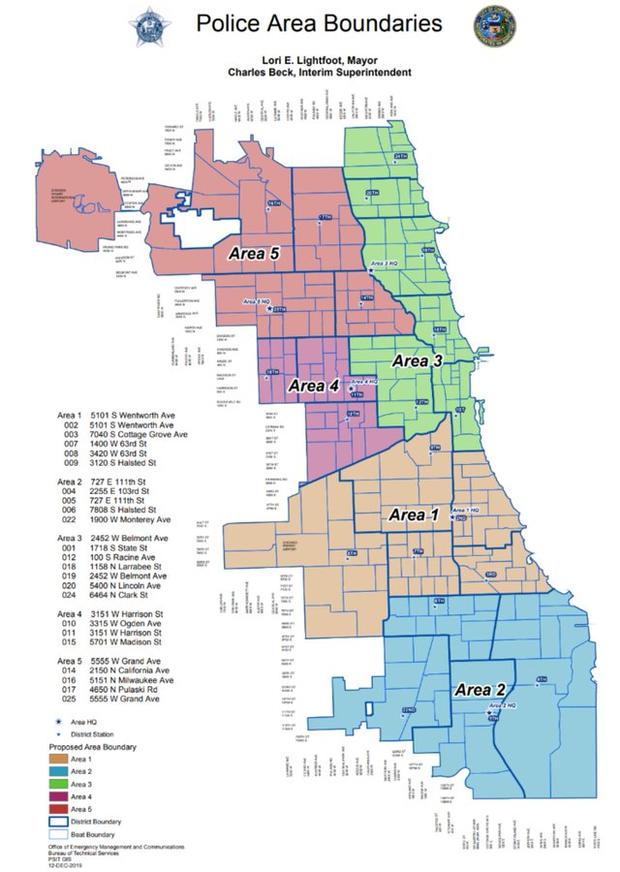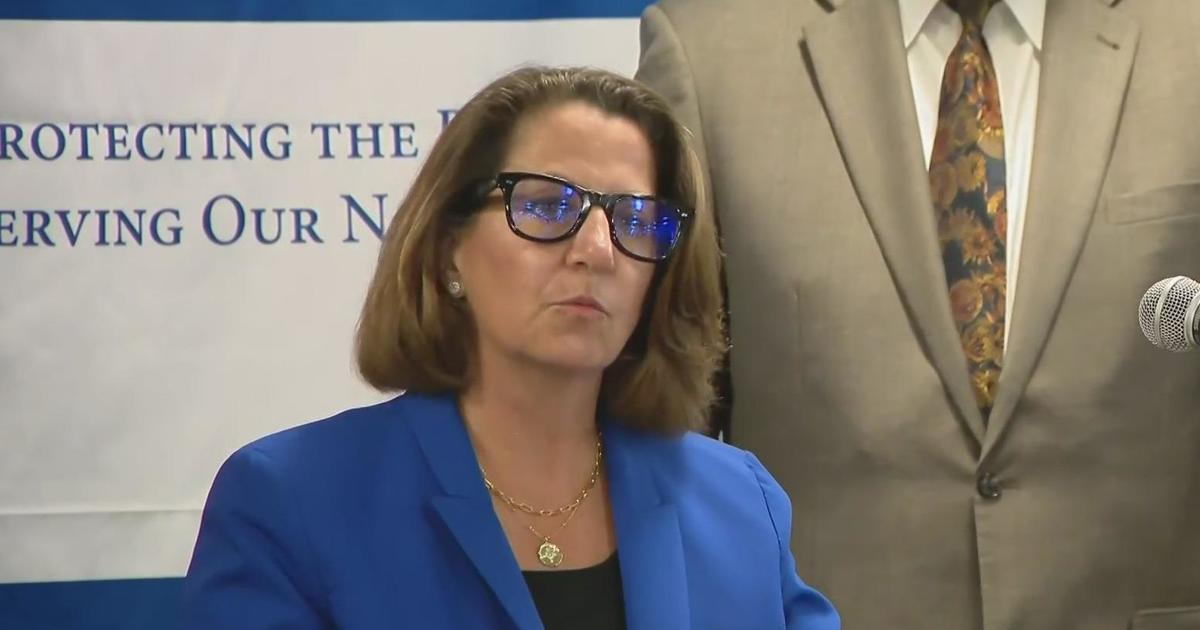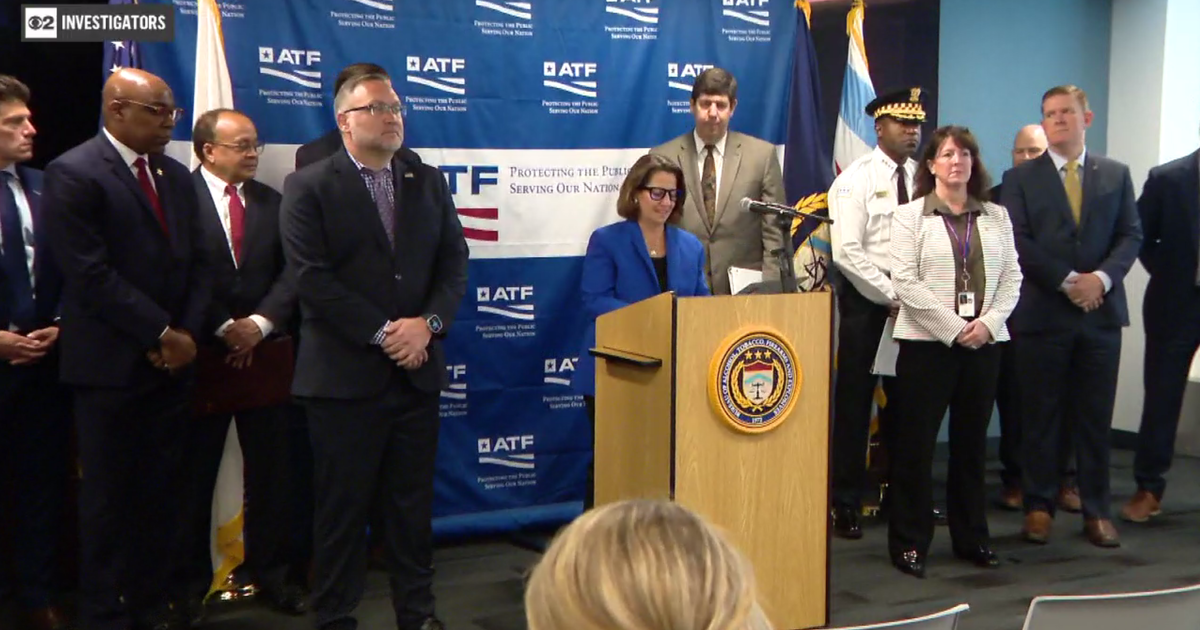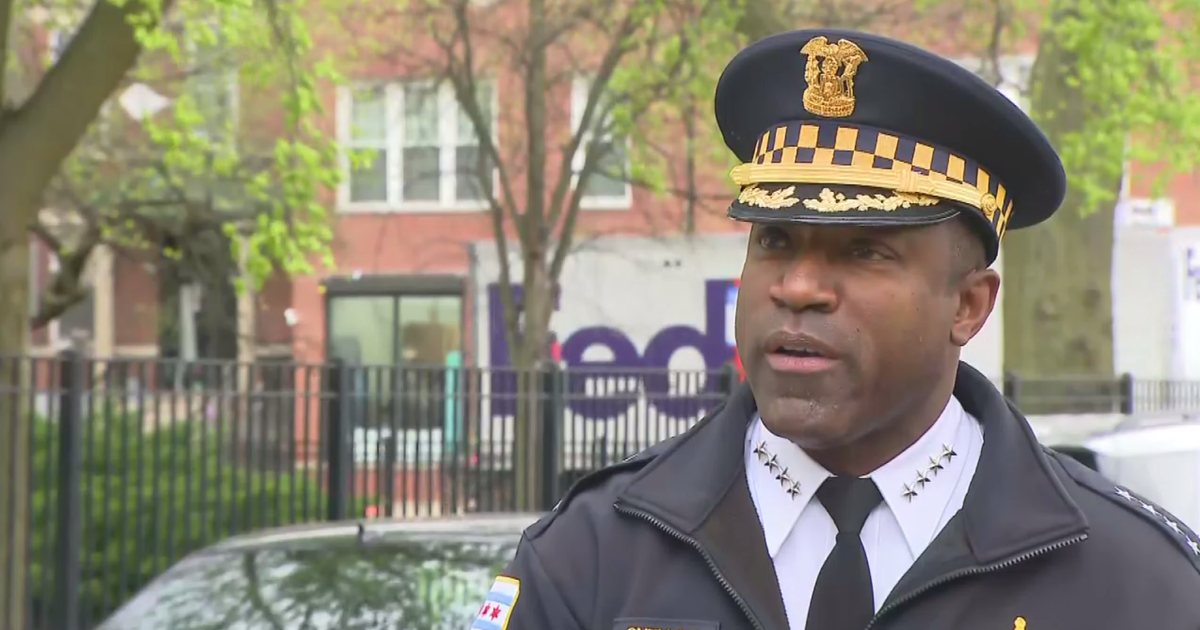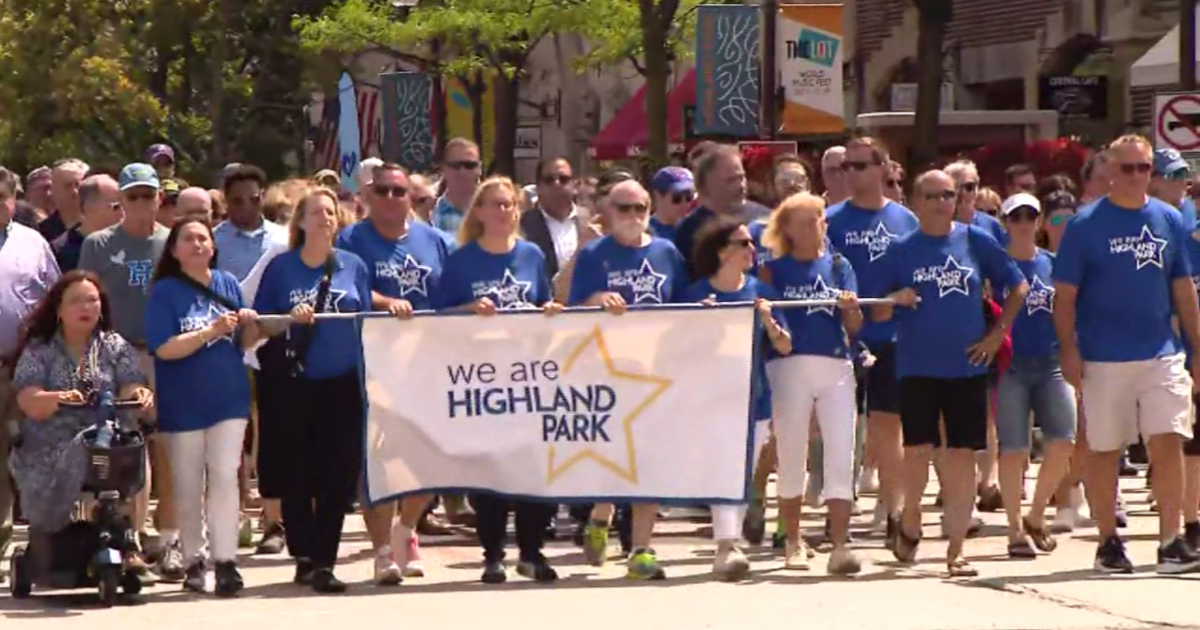Chicago Police Outline Boundaries Of New Detective Divisions Opening Next Year
by Todd Feurer, CBS Chicago web producer
CHICAGO (CBS) -- In an effort to improve response times for detectives, and improve an admittedly dismal murder clearance rate, the Chicago Police Department is adding two new detective areas next year, and on Tuesday top brass announced the boundaries of those bureaus.
"Many of our officers have been quietly lobbying for these two additional areas, and I'm happy to see CPD taking this step," Police Chief of Patrol Fred Waller said.
When the two new detective divisions open in April, the city will be divided into five detective areas instead of three:
- Area 1, now called Area Central, will include the 2nd, 3rd, 7th, 8th, and 9th districts on the South Side.
- Area 2, now called Area South, will include the 4th, 5th, 6th, and 22nd districts on the Far South Side.
- Area 3, now called Area South, will include the 1st, 12th, 18th, 19th, 20th, and 24th districts on the North Side, largely along the lakefront.
- Area 4 will include the 10th, 11th, and 15th districts on the West Side.
- Area 5 will include the 14th, 16th, 17th, and 25th districts on the Northwest Side.
-
Interim Police Supt. Charlie Beck said reopening Areas 4 and 5 is aimed at improving detective response times, particularly on the violence-plagued West Side.
Detectives in those districts currently operate out of areas at either 51st and Wentworth on the South Side, or Belmont and Western on the North Side, often making for long drive times to crime scenes.
Earlier this year, CPD announced it would reopen two detective areas that have been closed since 2012, in order to boost the department's homicide clearance rate by improving coordination between detectives and patrol officers, and reducing travel times for detectives responding to crime scenes.
Deputy Chief of Detectives Brendan Deenihan said, with the city currently divided into three detective areas, it can sometimes take detectives 60 to 90 minutes to arrive at a crime scene.
"By then, many witnesses are gone, and evidence has often been contaminated. These new areas aim to improve CPD's response time," he said.
Police brass said rank-and-file officers have been asking for the two shuttered detective areas to be reopened for years. Beck said doing so should not only improve response times for detectives, but improve community relations.
Beck said it's particularly important for neighborhoods with high crime rates is to be able to build a sense of familiarity with the officers and detectives fighting crime in their communities.
"They want to know who their police are. They want to have a relationship, because they're very likely to see them regularly, and when you see somebody regularly and you know that you'll see them tomorrow and the day after, you tend to have much more faith in them," he said.
Beck said the move to reopen to detective areas also would help gang and saturation teams assigned to the patrol bureau to more quickly respond to spikes in crime.
The department has not yet determined how many detectives will be assigned to each of the areas.
Deenihan said top brass will analyze year-end crime data to determine what types of crime are most common in each area to help them decide which types of detectives need to be deployed.
"The amount of violence, and the amount of resources that are necessary will ensure that detectives are in the right place in order to be effective," Deenihan said.
The two shuttered detective areas that are being reopened have not been updated since the 1970s, and will undergo $5 million in renovations before they reopen in April. They also will receive Area Technology Centers – tech hubs already in place at the three existing detective areas, to help investigators more quickly access surveillance camera footage after a shooting or other crime.
The Area Technology Centers were bankrolled by a donation from billionaire Ken Griffin.
Beck said he expects the department will be able to staff all five areas with current detectives, although the department will have to continue to hire new detectives as current officers retire.
"We hope to have another detective test moved forward. We should be able to just use existing resources to staff these new areas," Beck said. "From my point of view, Chicago has some really great detectives, and in my overview, in sufficient number."
